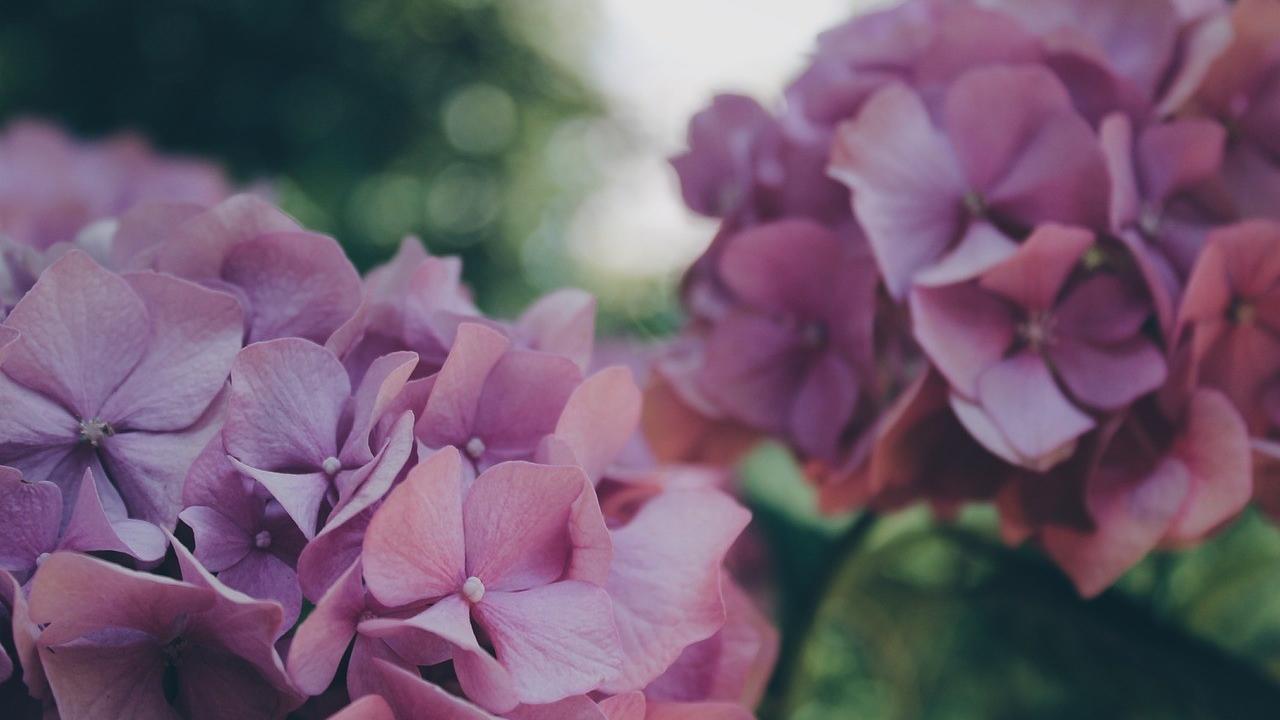Blog
Let’s talk tech (DW#702)

One of the biggest thieves of sleep is technology.
Our cell phones, tablets, computers and other electronic gadgets have become such a huge part of our daily lives that it’s often really hard to put them down—even at bedtime.
We are so used to keeping our phones besides our bed that we do not consider it to be a big deal.
But it is.
Technology affects our sleep in many more ways than we realize. Whether we are surfing the web, watching a YouTube video, or even just using our phone as an alarm clock, it is impacting the duration and quality of our sleep.
So if you, like many of us, look at your phone the last thing at night, and you are not satisfied with the quality of sleep that you are getting, make the connection between your use of technology and the quality of your sleep.
The sleep killers (DW#701)

We have been discussing the importance of sleep and how chronic sleep deprivation harms us. This week let us explore why we as a generation and a culture are not getting enough sleep.
Before reading any further, do a quick check in with yourself. Are you among the majority (more than two-thirds) of the modern population that does not get enough sleep? And if so, do you know what compromises your sleep?
Today let us explore the top two reasons why people do not get enough sleep:
1. Simply not valuing sleep. Like everything else, it all starts with our awareness that it matters and why it matters. If we have no idea of the importance of sleep and how the lack of it is impacting us, we will not make any changes to improve our sleeping habits.
2. Inconsistency. We do not follow a consistent sleep schedule. All the leading sleep gurus (including Matthew) tell us that CONSISTENCY is key.
He advises that the MOST important thing to optimize our sleep is to "Stick to a sleep schedule. Go ...
You are likely not the exception (DW#700)

Regardless of what we hear about other people needing sleep, sometimes we kid ourselves that we can get by with very little sleep (I have been doing exactly that for a long time. My recent foray into this subject is making me much more humble about my sleep needs . . .)
According to our favourite sleep expert, Mathew Walker, the odds that you or I fall into the group of people who can truly thrive on less sleep are incredibly low.
Here is how he puts it: "It is far, far more likely that you will be struck by lightning (the lifetime odds being 1 in 12,000) than being truly capable of surviving on insufficient sleep thanks to a rare gene." In other words, the chances of us trying to live optimally with sleep deprivation are essentially ZERO.
The consequences of chronically depriving ourselves of sleep while kidding ourselves that we don’t need it? Well, they are astonishingly devastating. Sleep deprivation dramatically increases the odds of getting everything – from mood disorders to ...
Sleep well, think well (DW#699)

In Brain Rules, 12 Principles for Surviving and Thriving at Work, Home, and SchoolJohn Medina outlines 12 principles for optimal brain health and function.
Guess which principle makes it to the top 3?
Sleep.
The principle he outlines is: Sleep well, think well.
He explains it very simply: Sleep loss = brain drain.
This is especially important for those of us who like to "burn the midnight oil" (students, take note!)
Medina explains: "One study showed that a highly successful student can be set up for a precipitous academic fall just by getting less than seven hours of sleep a night. Take an A student used to scoring in the top 10 percent of virtually everything she does. If she gets just under seven hours of sleep on weekdays, and about 40 minutes more on weekends, her scores will begin to match the scores of the bottom 9 percent of individuals who are getting enough sleep."
Ouch! It appears that most students would do better to sleep one more hour than to spend that time study...
Rest enough to do deep work (DW#698)

Before we get to today's DW, a few points of clarification from yesterday:
1) I am NOT a fan of Jeff Bezos
2) I am NOT a fan of Amazon or its oppressive business practices
And I still believe that we can learn from everyone. Although our definition and their definition of success may be vastly different, we can still appreciate the way CEOs of wealthy corporations manage their time and prioritize self-care.
I also wanted to re-iterate how blessed I feel when one or more of you engage with DWs and challenge what is expressed or hold me accountable for my words. When we build a community that cares enough to give valuable feedback and hold each other accountable, it can help us grow and remain humble and authentic - so a huge thank you!
And now, for today's DW!
Have you noticed, that you can get high quality work done in a shorter period of time when you are focused?
Cal Newport in his brilliant book, Deep Work has come up with an equation to explain this:
High Quality Work Produced = ...
Do you have more work to do than Jeff Bezos? (DW#697)

Jeff Bezos, CEO and president of Amazon.com, is one of the wealthiest people on the planet (who happens to be the first person worth over $100 billion). One would imagine running his empire would take quite a bit of time, right?
It appears that successful businesspeople like Jeff Bezos are now beginning to learn just how important sleep is for their well-being (and also for their employees’ wellbeing).
Arianna Huffington writes inThe Sleep Revolution that a lot of the tech companies keeping us up at night via their apps and other blue-light photon generators are now beginning to learn that when their employees are not well-rested, their bottom line begins to suffer.
Here are few examples of successful entrepreneurs that she mentions in the chapter called"Sleep and the Workplace".
1. Jeff Bezos gets eight hours of sleep every night. He told The Wall Street Journal: "I’m more alert and I think more clearly… I just feel so much better all day long if I’ve had eight hours."
2. Venture c...
Too busy working to get enough sleep? (DW#696)

Do you ever sacrifice sleep because you have too much work to do?
You may want to pay attention to the following: (Talking to myself here).
Research shows that sleep-deprived people have to work way harder than they would have to work if they had a full night’s sleep to power them through their days.
As Mathew Walker explains, it takes twice as long to boil water on medium heat than it does on high heat. And working while you are sleep-deprived is like trying to boil water on medium heat.
Here’s how he puts it: “Under-slept employees are not, therefore, going to drive your business forward with productive innovation. Like a group of people riding stationary exercise bikes, everyone looks like they’re peddling, but the scenery never changes. The irony that employees miss is that when you are not getting enough sleep, you work less productively and thus need to work longer to accomplish a goal. This means you often must work longer and later into the evening, arrive home later, go to...
What did you do with the hour you gained last week? (DW#695)

In North America and Western Europe, the end of October/beginning of November signals the switch back from Daylight Saving Time. The clocks go back and we "gain an hour" on Sunday.
While many of us cringe at the coming of Winter and the shorter, darker days, there is a significant statistic that we need to be aware of:
"In the autumn within the Northern Hemisphere, when the clocks move forward and we gain an hour of sleep opportunity time, rates of heart attacks plummet the day after", writes Mathew Walker inWhy we Sleep.
He explains that the opposite is also true of course. Here is how he puts it:
"When communicating science to the general public in lectures or writing, I’m always wary of bombarding an audience with never-ending mortality and morbidity statistics, lest they themselves lose the will to live in front of me. It is hard not to do so with such compelling masses of studies in the field of sleep deprivation. Often, however, a single astonishing result is all the people n...
Would you buy this pill? (DW#694)

Imagine you are scrolling through your newsfeed and you come across this ad:
"AMAZING BREAKTHROUGH!
Scientists have discovered a revolutionary new treatment that makes you live longer. It enhances your memory and makes you more creative. It makes you look more attractive. It keeps you slim and lowers food cravings (yes, PLEASE!). It protects you from cancer and dementia. It wards off colds and the flu. It lowers your risk of heart attacks and strokes, not to mention diabetes. You’ll even feel happier, less depressed, and less anxious. Are you interested?"
Some of us would keep scrolling down, not believing the hype. Others may be much too curious (or desperate) and may keep reading, noticing that the organization who published it is not big pharma, out to make millions but instead a well-respected organization.
Matthews writes in Why we Sleep about this advertisement: "While it may sound hyperbolic, nothing about this fictitious advertisement would be inaccurate. If this were a dru...
Keeping watch while you sleep (DW#693)

Our Creator is simply awesome!
In the animal kingdom, animals need to protect themselves from predators. This means that sleeping would be risky in that they might get attacked, right?
Well interestingly, some actually sleep with half their brain awake while the other half sleeps. As Michael says, "Mother Nature had no choice. Sleep with both sides of the brain, or sleep with just one side and then switch. Both are possible, but sleep you must. Sleep is nonnegotiable."
Here is one example: when birds are alone, they sleep with one eye open. One eye’s open, the other one’s shut—allowing half their brains to sleep while the other half gets a reboot.
Interestingly, when a bunch of birds together, you may observe them line up in a row with the birds on the inside enjoying two-eyes-shut full sleep while the birds on the ends have one eye open and half their brains asleep. Midway through the sleep session the birds on the end will turn the other direction and shut the other eye to give t...
